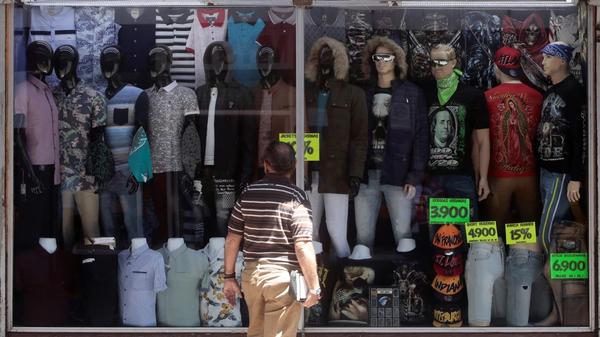Costa Rica's FTA with China, a blurry mirror for the Region ·Global Voices
Located in the Sabana Metropolitan Park, in San José, the Costa Rican National Stadium is the most relevant sports infrastructure in the country and one of the most modern in Central America. It has 34,122 square meters of space to practice fencing, athletics, or chess, but the star sport that fills its 34,762 seats is soccer.
“This National Stadium is the heart of Costa Rica, beating at the pulse of the dreams and illusions of a people who deserve the joy of sport”, reads the commemorative plaque installed in this colossus, a reminder of China's gift to Costa Rica due to the beginning of the development of bilateral relations in 2007, which implied the rupture of diplomatic relations between Taiwan and Costa Rica.
Inaugurated in January 2011, 10 years have passed since the construction of an infrastructure built entirely with Chinese labor, as diplomatic sources from the Government of Costa Rica confirmed to the Voice of America. Up to 800 workers participated in the lifting of the colossus.
Like the San José stadium, the Beijing government has erected more than 80 replicas around the world, mainly in Africa, Asia and Oceania.
They are gifts "to show friendship", according to a tweet in Spanish from the Chinese Ministry of Foreign Affairs published on March 26 of this year, to those countries that, turning their backs on Taiwan, disassociate themselves from the foreign policy of the United States, creating diplomatic ties in the first instance with China, and later establishing the commercial rules for the signing of a Free Trade Agreement.
Costa Rica was no exception. Coinciding with the inauguration of the National Stadium, on August 1, 2011, under the mandate of President Laura Chinchilla, the Free Trade Agreement (FTA) between Costa Rica and China came into force, at a time when China had few relations with the countries of the region.
A FTA not “successful”
A decade later, the balance has not been as expected, according to the current Costa Rican government.
“Relations with China have not been as commercially successful as we would have liked,” Vice Minister for Multilateral Affairs Christian Guillermet told the Voice of America, in the executive of Carlos Alvarado, president of Costa Rica under the Citizen Action Party (PAC), a political affiliation that defines itself primarily as Social Democrat and Progressive, during a recent visit to Washington DC.
"Relations with China have not been as commercially successful as we would have liked": Costa Rica's Vice Foreign Minister
No media source currently available
According to data from the Ministry of Foreign Trade of Costa Rica (COMEX), from 2011 to 2019 the trade balance with China, as a percentage, presented an unfavorable balance of 91.16%.

Taking 2019 as a reference, exports from Costa Rica to China reached 121.6 million dollars, while imports from the Asian nation reached 2,123.5 million dollars.
Although Costa Rica's sales to China increased from 37.8 million dollars in 2011 to 121.6 million in 2019, they are still very far from the volume of imports from the Asian giant, which in the same period amounted to 1,281 .6 million to $2,123.5, according to COMEX statistics.
“Logically, these numbers would now have to be reviewed, reviewed in the sense of having a new strategy to have an impact on the Chinese market. Much of this has to do with our export capacity and what are the niches in which we are exporting”, assured Guillermet.
“Boneless and frozen beef, medical devices, chunks of beef, bananas, edible offal of the bovine species…”, four of the five main export products from Costa Rica to China belong to the primary sector, according to statistics of COMEX. Export "niches" that, according to the vice-chancellor, those of foreign trade "are studying with great suspicion and seeing how we can change that."
“One of the options being considered is opening up to Chinese tourism. That would really be a very interesting way of reversing that balance”, acknowledges Guillermet.
However, despite the political and commercial rapprochement between the governments of Beijing and San José, Costa Rica's first trading partner continues to be the United States, followed by the European Union, and in third instance, China, according to data provided by the Ministry of Foreign Trade.
According to the statistics provided, comparing Costa Rica's trade balances with the US and China since the signing of the FTA with Beijing, it can be seen that exports with the northern neighbor are higher in volume, and the deficit commercial is not only significantly lower, but has been declining over the years.
Taking 2019 as a reference, the last year for which there are records, Costa Rica's deficit with the US reached its lowest quota, reducing to 12.41 percent, with the value of exports being 4,823.9 million dollars, the highest to date.
Unlike China, Costa Rica's main export product to the US is medical devices, reaching 45.3% of total exports in 2019.
FTA with China, topic of conversation with the US
Currently only three countries in Latin America have free trade agreements with China: Chile, Peru and Costa Rica, and several more in the Western Hemisphere have initiated diplomatic relations with the Asian giant.
This situation worries the US authorities and is the reason for diplomatic tensions, even with historically allied countries, such as Costa Rica.
According to the Vice Minister of Multilateral Affairs, the FTA with China “has been a topic of conversation [with the US] with much more emphasis on the Trump administration than with the Biden administration. The evolution of US foreign policy vis a vis China has had a certain impact on us. But the relations between Costa Rica and the US are so strong that it is not really a cloud in our relations”.
Costa Rica's Vice Minister of Multilateral Affairs, Christian Guillermet, on relations with China
No media source currently available
Broken promises
Slap on the wrist aside, on the occasion of the tenth anniversary of the implementation of the FTA with China, the headlines of the Costa Rican press tarnished such an important date: “FTA with Costa Rica and China meets 10 years of being the great incomplete promise”, headlined the newspaper La Nación on June 24 of this year.
“The Free Trade Agreement (FTA) between Costa Rica and China remains today, just a few days away from completing 10 years of validity, as the great incomplete promise for exporting goods, services and attracting investment to the country", pointed out the newspaper.
And it is not only the balance that would not have met the expectations of the Costa Rican government. The same would have happened with expected investments, such as the construction of free zones.
“There have been no agreements where these free zones are going to be developed,” replied the Vice Minister of Multilateral Affairs when asked about the matter.
For a country like Costa Rica, which exports primary sector products, the construction of these free zones would have given a boost to exports, government sources assured the VOA.
“Our products cannot arrive on time and with the quality that we would like. We have to solve this technological problem that involves reaching the Chinese market with fresh fruit," says Víctor Umaña, economist and professor and researcher in trade and agricultural policies.
The list of unfulfilled, incomplete or delayed Chinese investments would be long, one of the most controversial issues being the expansion of the highway that connects the country's capital, San José, with the coastal town of Limón, at the hands of the China Harbor Engineering Company (CHEC) Construction, which started in 2017 and is only 37% complete, according to La Nación.
According to Umaña, “we assumed that [the road] would be cheaper to build with the Chinese. But at the end of the day, Chinese companies are state-owned, they get state interference. The times are not the same, the practices are not the same. […] It is one thing to do business with Chinese, commercial, export and import companies, and another thing to receive investment from China in important sectors. The experiences that I know of investing in China in Latin America and in particular in my country, Costa Rica, have been a disaster”.
China: Central America target
Beyond Costa Rica, Chinese companies are currently engaged in infrastructure works in Honduras, Nicaragua and Panama, and there are investment plans in El Salvador and Guatemala. Although only two countries on this list have diplomatic relations with the Beijing government, Panama, since 2017, and El Salvador, since 2018.
China's interest in establishing ties with relatively small countries would have political and strategic reasons, beyond economic ones, according to experts.
“These are small countries that do not represent a gain in economic matters neither for the Chinese Communist Party nor for state companies, nor for small companies [but] from the geopolitical point of view, a vote in the United Nations does not matter be it from Mexico, Costa Rica, Cuba or Brazil,” Parsifal D'Sola, director of the Chinese-American Research Center of the Andrés Bello Foundation, told VOA.
“In that aspect, maintaining a good relationship either economically or maintaining political ties is something that benefits the Chinese government,” he added.
Stadium diplomacy "made in China" reaches El Salvador
The days of the National Stadium of Costa Rica could be numbered as the largest and most modern in Central America and the Caribbean. Soon, another stadium, also built by a battalion of Chinese workers, will shine in the Salvadoran capital. In diplomatic language, it is a non-refundable investment.
EE. US is watching China closely after reports of hypersonic missile tests
The Salvadoran president, Nayib Bukele, announced it on Twitter during his visit to Beijing on December 3, 2019.
“President Xi Jinping has just granted El Salvador a gigantic non-reimbursable cooperation, managed entirely by our Government.(...) A new, modern and large-capacity National Stadium”.
Although there is still no date for the possible signing of an FTA with China, on May 19 the Legislative Assembly of El Salvador ratified an agreement with China to facilitate the execution of several projects financed by the government of Xi Jinping.
“It is the worst business for El Salvador,” said Federico Hernández, executive director of the country's Chamber of Commerce, after the announcement.
In statements collected by the news portal elsalvador.com, Hernández assured that, although the public works built by the Asian giant can generate a profit, the workforce will be Chinese. "It is a pity, for example, that Salvadoran workers do not have a job opportunity in the works that are carried out."
And while Bukele and El Salvador await their new stadium built with Chinese labor, there is already an unavoidable sporting event: the opening match, which, as in the case of Costa Rica, will be against the Chinese team.
With a diplomatic 2-2, ended the duel in 2011.
Connect with the Voice of America! Subscribe to our YouTube channel and activate notifications, or follow us on social networks: Facebook, Twitter and Instagram.




